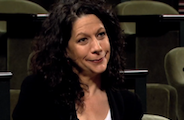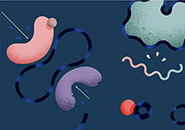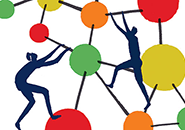 |
Heike PelkaRESEARCH SPECIALIST IIIDanny Reinberg lab / New York University |
|
I think what people will find most surprising is that, as a lab manager who has worked at the bench for 33 years, I do a lot of architectural work. I even have my own architectural ruler now. The biochemistry wing at NYU was recently renovated, and I designed a section of the labs. Of course, people sometimes say, "That's not in your job description." Well, I don't believe in job descriptions. You do what you are capable of. |
|
 |
Matthew AdamsRESEARCH TECHNICIAN IIChristopher Plowe lab / University of Maryland School of Medicine |
|
The part of my job that I find most surprising is our challenge study. We give patients malaria to study the disease process and its symptoms, and then we cure them. It's humbling and interesting to me that people come to us to get malaria. They're sacrificing a little bit of their health so that we can learn something new to create a vaccine or to learn about the parasite. Our duty to them is to make sure they aren't sick for too long. |
|
 |
Sarah SarsfieldLAB MANAGERDavid Ginty lab / Johns Hopkins University |
|
Some of the procedures with mice—like checking plugs—would probably be among the weirdest stuff I've done. We do developmental neuroscience, which means that we study embryonic development. So we need to determine when mice have mated and then track the pregnant mice. The morning after you put a male and a female together, you check for a plug. If the mice mated, the female will have a sperm plug. As a scientist, I don't really think much of it, but when people ask what I do, I don't usually answer, "Oh, I spent yesterday morning checking 80 female mice to see if they had sex the night before." |
|
 |
Frank WilsonLAB MANAGER IIPietro De Camilli lab / Yale University |
|
I'm responsible for maintaining the lab's infrastructure along with other operations-related duties. People are surprised to learn that, rather than call in a specialist, I often repair the lab's instrumentation myself. My father was adept at repairing and constructing electronic devices, and in my early years I picked up a lot by watching him at work in the basement. I'm not afraid to open up an instrument, even if I don't normally operate it, and I can usually diagnose the point of failure if a system is faulty. I find it a welcome change from tedious administrative tasks. |
|
Photos: Pelka: Heike Pelka; Adams: Matthew Adams; Sarsfield: Sarah Sarsfield; Wilson: Frank Wilson









